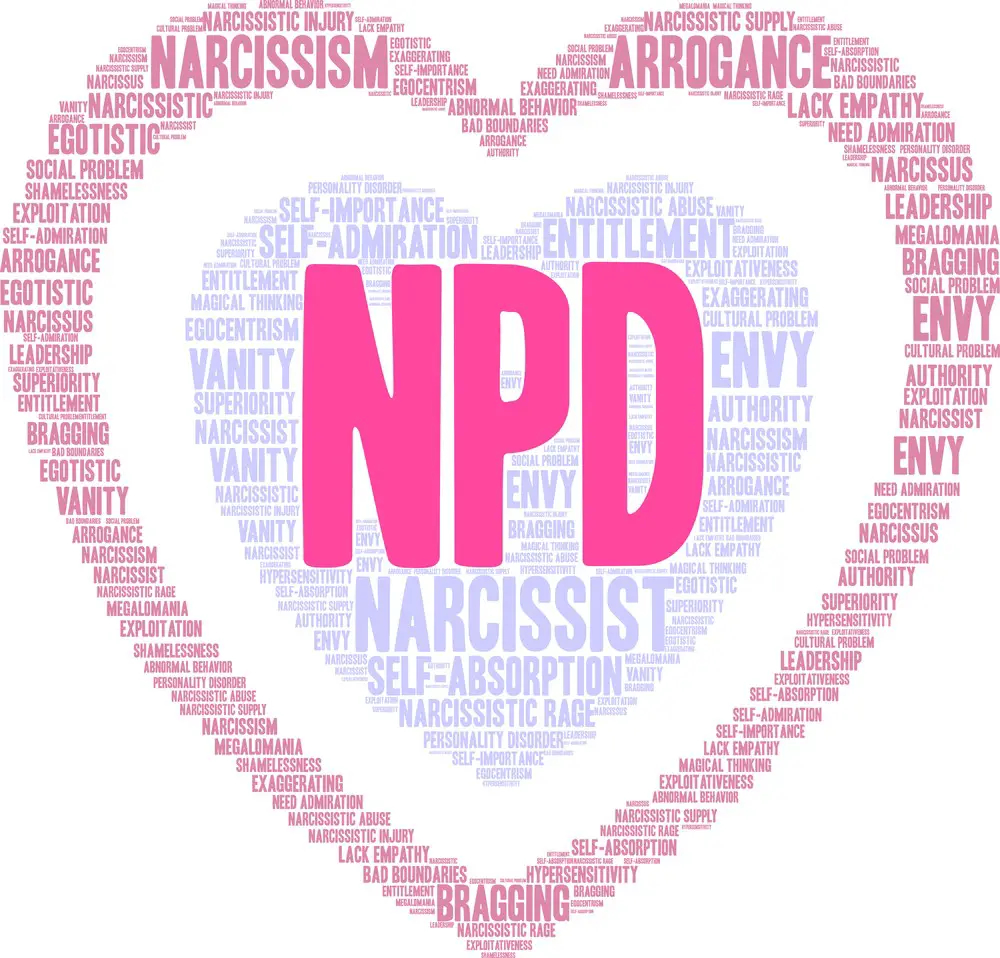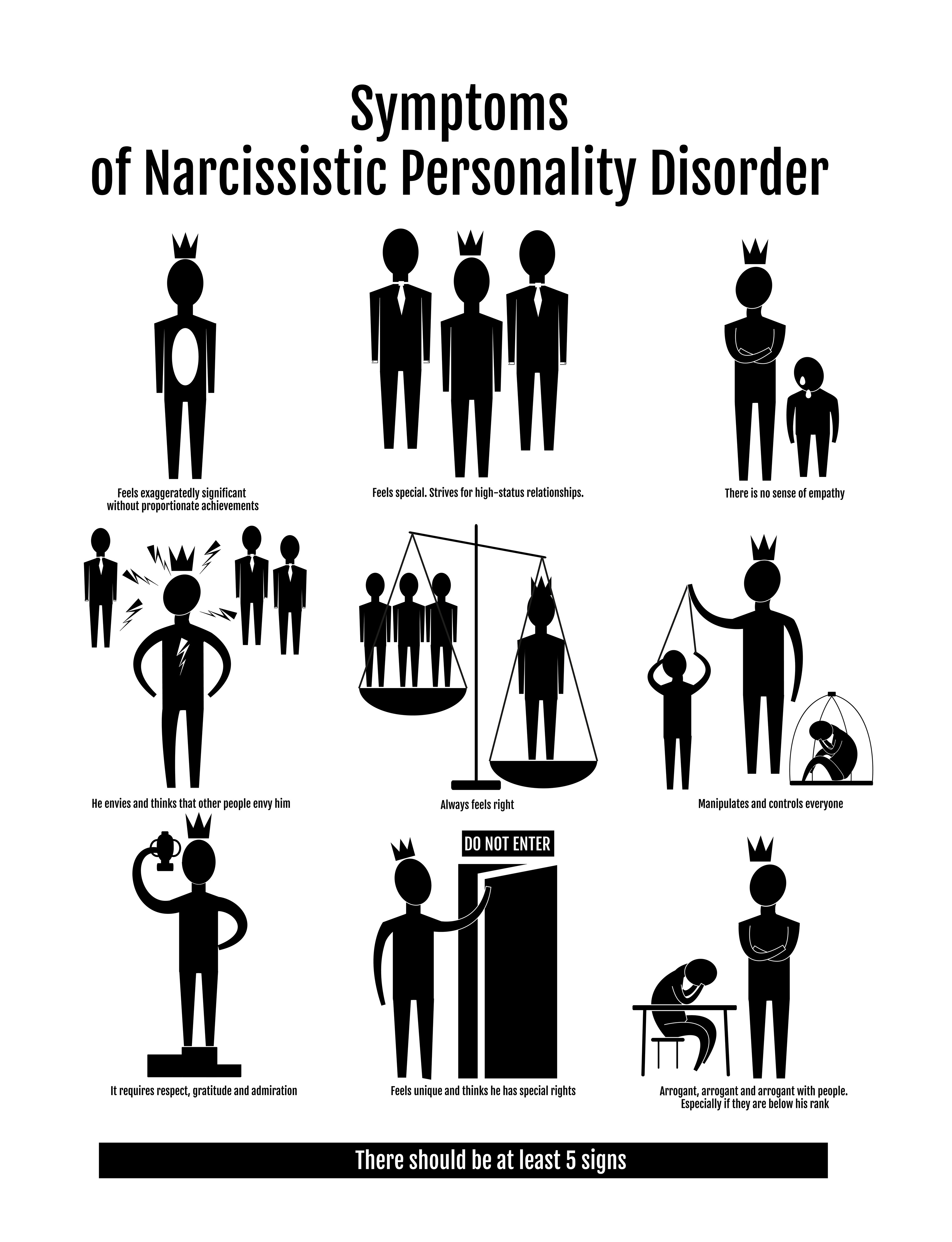As a BetterHelp affiliate, we receive compensation from BetterHelp if you purchase products or services through the links provided
Navigating conversations with a narcissist can be challenging, especially when dealing with text messages. Recognizing and understanding a narcissist’s communication patterns is essential for maintaining healthy boundaries and minimizing the emotional impact they can have. In this article, we’ll explore effective strategies for responding to a narcissist’s text messages, equipping you with the tools to handle any situation that may arise.
A narcissist’s communication style can be manipulative and full of self-importance, often leaving the recipient disoriented and questioning their thoughts and emotions. Whether you’re caught in a romantic entanglement, managing a coworker, or dealing with a family member, figuring out how to handle these interactions can be overwhelming. We’ll delve into effective techniques for various relationships, ensuring that the conversations are respectful and constructive while mitigating any further issues that may develop.
Key Takeaways
- Recognize and understand narcissistic communication patterns
- Employ strategies and techniques for maintaining respectful interactions
- Learn how to manage the emotional impact and prevent further problems

Understanding Narcissist Text Messages
Narcissist text messages can be tricky to decipher, but understanding their underlying behaviors and communication patterns can enable you to identify and effectively respond to their manipulation tactics. This section will discuss key strategies such as recognizing gaslighting, identifying love bombings, and detecting control tactics.
Recognizing Gaslighting
Gaslighting in text messages involves subtle manipulation through distortion and denial of reality. Narcissists disrupt your sense of truth by twisting meanings, denying facts, and dismissing your experiences. For instance, they might:
- Accuse you of being “too sensitive” or overreacting
- Pretend to forget about conversations or commitments
- Embed lies and distortions within seemingly normal conversations
To recognize gaslighting, notice sudden changes in tone, context, or subject matter. Look for signs that the narcissist is attempting to alter your perception or make you doubt yourself.
Identifying Love Bombing
Love bombing is a tactic narcissists use to charm and win you over with excessive affection, attention, and adoration. In text messages, this can manifest through:
- Constant compliments and flattery
- Overwhelming expression of love or concern
- Extravagant promises and plans
While these gestures may seem endearing initially, they often serve to manipulate and control you. When the love bombing stops, the narcissist may revert to criticism or withdrawal of affection. If you notice extreme affection or sudden shifts in behavior, be cautious, as it might be a sign of love bombing.
Detecting Control Tactics
Narcissists seek to exert control through various tactics in text messages. Some common techniques include:
- Guilting or shaming you for actions, thoughts, or emotions
- Demanding immediate replies or unreasonable amounts of your time
- Threatening to withdraw affection or support
Watch for these control tactics if you feel pressured or anxious when communicating with a narcissist. By identifying their behavior, you can take steps to assert your boundaries and safeguard your emotional well-being.
In summary, understanding narcissist text messages requires vigilance and self-awareness. Keep an eye out for gaslighting, love bombing, and control tactics, and remind yourself that you deserve respect and empathy in all your interactions.

Strategies for Responding
Navigating conversations with a narcissist can be challenging, but employing the right strategies can help you maintain your confidence and emotional well-being. This section discusses three key approaches to handling text conversations with a narcissist: establishing boundaries, remaining neutral, and focusing on facts.
Establishing Boundaries
One crucial element in responding to a narcissist’s text is setting clear and firm boundaries. You must recognize your limits and be unafraid to communicate them assertively. Here are some helpful strategies to establish boundaries:
- Be explicit: Clearly state your boundaries to the narcissist. For example, consider saying, “I appreciate your input, but I have already made my decision.”
- Stay consistent: Maintaining a consistent stance is essential in reinforcing your boundaries. Remind the narcissist of your limits when necessary.
- Refuse to engage: When the narcissist attempts to cross your boundaries, do not indulge them—politely declined to participate in the conversation and disengaged from the interaction.
Remaining Neutral
It’s essential to remain emotionally detached and objective when texting a narcissist. Here are a few tips for maintaining a neutral demeanor:
- Avoid emotional triggers: Steering clear of topics you know will evoke a strong emotional reaction from the narcissist.
- Control your emotions: Narcissists often seek to provoke your emotional response. Remain composed and avoid reacting defensively.
- Use measured language: Opt for neutral phrases and keep your responses brief to prevent the narcissist from interpreting anything in your message as provocative.
Focusing on Facts
When confronted with facts, narcissists may resort to deflecting, manipulating, or twisting the truth. Sticking to objective information can reduce the chance of getting swept up in the narcissist’s web of manipulation. Here’s how to focus on facts during your text conversation:
- Be precise: Provide concise and accurate information without embellishments.
- Offer documentation: Include evidence to support your statements, such as screenshots or data.
- Reiterate facts: If the narcissist attempts to distort information, calmly restate the facts and avoid being drawn into an argument.
By employing these three strategies—establishing boundaries, remaining neutral, and focusing on facts—you can effectively manage text conversations with a narcissist while protecting your emotional well-being.
Effective Communication Techniques
Using Appropriate Language
When engaging in a conversation with a narcissist, it’s crucial to choose words wisely. Strive for clarity and diplomacy in communication, demonstrating confidence and knowledge through language. Consider utilizing phrases that show empathy and understanding while avoiding accusatory or hostile tones. This approach can help establish a constructive dialogue and mitigate potential conflict.
Experimenting with various figures of speech can also effectively convey your thoughts and feelings creatively. Varying sentence lengths and structures enhance the overall flow and rhythm of the conversation, making it more engaging and interesting for both parties involved.
Being Concise
Brevity and conciseness are of great importance in conversations with a narcissist. Narcissists often tend to dominate conversations, so getting to the point quickly will save time and prevent them from misinterpreting or twisting your words. Using precise language and presenting ideas clearly and logically will streamline the conversation and ensure your key points are effectively communicated.
Prioritizing Well-Being
In any conversation, especially with a narcissist, prioritizing your emotional well-being is paramount. It’s important to recognize when a discussion becomes taxing and take necessary measures to protect yourself from additional stress. Remain neutral and objective in your responses and establish boundaries when needed.
Focusing on self-care and nurturing your well-being can help counteract the potentially draining effects of a conversation with a narcissist. Always be true to your feelings and needs while maintaining a respectful and understanding approach.
Ultimately, leveraging these effective communication techniques will greatly enhance the quality and experience of your interactions with a narcissist. Conversations can become more manageable and meaningful by balancing empathy with firm boundaries, conciseness with creative expression, and prioritizing emotional well-being.
Managing Emotional Impact
Self-Care Practices
Managing the emotional impact of a narcissist’s text starts with practicing self-care. When faced with messages that may affect one’s self-esteem, it’s essential to prioritize personal well-being. Engaging in mindfulness meditation or journaling activities may help foster self-awareness, empathy, and self-compassion. Maintaining a balanced lifestyle with proper nutrition, exercise, and sleep should not be underestimated in promoting mental health.
Support Network
When dealing with a narcissist’s text, having a strong support network is crucial. Surrounding oneself with friends, family, or colleagues who provide emotional support and understanding can make all the difference. They are a comforting reminder that one is not isolated in the face of a narcissist’s behavior. Sharing experiences with others and seeking their perspectives may suggest different ways to handle the situation effectively.
Therapeutic Interventions
Sometimes, coping with a narcissist’s text might require therapeutic interventions. Whether it be individual counseling, group therapy, or even online support forums, accessing professional help can be particularly helpful in processing the emotional impact. Therapy can be instrumental in rebuilding self-esteem and empowering oneself to establish boundaries while dealing with a narcissist’s behavior. Skilled therapists can guide individuals through developing resilience and emotional coping mechanisms, promoting healing, and ensuring mental health.
Handling Different Types of Relationships
Navigating Family Dynamics
When dealing with family members exhibiting narcissistic traits, establishing boundaries is essential. For instance, if a parent or sibling constantly sends texts that belittle or criticize, kindly but firmly let them know that such behavior is unacceptable. Setting limits will help protect one’s emotional well-being and prevent further manipulation. Maintaining one’s mental health should take precedence, even in family dynamics.
At times, children might display narcissistic tendencies as well. To address this, focus on open communication and helping them understand the impact of their actions. Encourage empathy and consideration towards others to promote a more emotionally aware mindset.
Dealing with Dating and Romance
Handling a narcissistic partner’s texts can be particularly challenging in dating and romance. Stooping to their level of self-centeredness or engaging in heated exchanges only amplifies the issue. Instead, adopt a neutral tone, avoid the urge to defend oneself, and keep responses concise.
Moreover, recognize any red flags in the relationship. If a pattern of harmful behavior emerges, consider taking a step back to assess whether the relationship is nourishing. Love and respect go hand in hand; thus, continuing a relationship that undermines one’s self-worth is detrimental.
Addressing Friendships
Friendships, too, can be impacted by narcissistic individuals. When a friend’s messages raise concerns, strive for open dialogues that promote understanding. Expressing feelings, asserting boundaries, and fostering a balanced give-and-take dynamic is crucial.
Sometimes, a gentle reminder about the importance of mutual support and respect can help bring about positive change. However, reevaluating the friendship might be necessary if a friend consistently exhibits narcissistic behavior that negatively impacts the relationship. Surrounding oneself with loving and supportive friends greatly affects happiness and well-being.
Preventing Further Issues
Recognizing Red Flags
Recognizing red flags in a narcissist’s texts is essential to prevent further issues. Spotting these warning signs early can help to avoid getting caught in a cycle of manipulation. Some common red flags include:
- Excessive self-praise: Narcissists tend to shower themselves with compliments and may require constant reassurance.
- Excessive control: They may try to control your decisions or demand exclusive attention.
- Lack of empathy: Narcissists rarely show concern for others’ feelings, which may be apparent through their text messages.
- Manipulation: They often use guilt-tripping, gaslighting, or other tactics to manipulate you.
- Defensiveness: When faced with criticism or feedback, they might become overly defensive or deflect blame onto others.

Avoiding Provocation
To prevent further issues, it’s important to avoid provoking a narcissist. When responding to their texts:
- Stay calm: Keep your emotions in check, as narcissists thrive on emotional reactions.
- Set boundaries: Be assertive but respectful when establishing your limits.
- Don’t take the bait: Ignore attempts to engage in verbal spats or drama; this only fuels their ego.
- Avoid giving unsolicited advice: Narcissists don’t take kindly to criticism or suggestions.
- Keep conversations brief and to the point: Narcissists may use texts to seek attention; limit communication to essential topics only.
| Tips | Brief Explanations |
|---|---|
| Stay calm | Don’t let your emotions overpower your responses |
| Set boundaries | Protect your personal space and be assertive |
| Don’t take the bait | Prevent further issues by not engaging |
| Avoid giving unsolicited advice | Narcissists dislike criticism |
| Keep conversations brief | Focus only on essential topics |
Seeking Professional Help
While recognizing red flags and avoiding provocation can help prevent further issues, there are times when professional help is necessary. Therapy or counseling can support those affected by a narcissist’s toxic behavior. A few reasons to seek help include:
- Feeling overwhelmed: When the negative impact of a narcissist’s behavior starts to take a toll on your mental well-being, it’s time to find a professional to help manage your emotions.
- Setting boundaries: Professionals can teach effective techniques for setting and maintaining healthy boundaries with narcissists.
- Building self-esteem: Narcissists can often damage a person’s sense of self-worth. Therapists can help rebuild self-esteem and teach coping strategies.
Remember, seeking professional help is a sign of strength, not weakness, and can greatly improve your ability to navigate and cope with the challenges of dealing with a narcissist.
Frequently Asked Questions
What is the most effective way to deal with a narcissistic message?
Dealing with a narcissistic message can be challenging, but one effective approach is to remain calm and composed. You can achieve this by focusing on facts rather than engaging in emotional battles. Setting boundaries and being assertive without giving in to their manipulative tactics is crucial.
How can one disarm a narcissist in a conversation?
To disarm a narcissist in a conversation, you can use “gray rocking.” This involves providing neutral and unemotional responses, essentially becoming uninteresting to the narcissist. You can also utilize the Socratic method by asking probing questions to make them question their assumptions and behavior.
What tactics can be employed when handling narcissist lies in a text?
When handling narcissistic lies in a text, it’s important to maintain your composure. Stick to your principles and facts while avoiding engaging in emotional confrontations. You might consider ignoring the lie altogether or using the power of silence to let them know that their tactics aren’t working on you.
What are some examples of successful responses to narcissistic texts?
Success when responding to a narcissistic text often comes in the form of not engaging in their games. Here are a few example responses:
- “Thank you for sharing your opinion.”
- “I see what you’re saying, but I have a different perspective.”
- “Let’s agree to disagree on this topic.”
These responses avoid escalating the situation and express your thoughts without fueling the narcissist’s ego.
How can one outsmart a narcissist in a texting conversation?
To outsmart a narcissist in a texting conversation, you can use these strategies:
- Stick to factual information and avoid getting involved in emotional conflicts.
- Be assertive in setting your boundaries and not allowing them to manipulate you.
- Redirect the conversation to more neutral subjects, minimizing the chances of any power play.
What is the outcome when ignoring a narcissist’s text?
Ignoring a narcissist’s text can lead to two possible outcomes. First, the narcissist may eventually lose interest, leaving you alone. Alternatively, the narcissist might escalate their tactics to elicit your reaction. In either case, it’s crucial to remain composed and consistent in maintaining your boundaries.
About Jacob Maslow
After surviving the traumatizing events of 9/11, I took it upon myself to heal through helping others. I’m the primary caregiver of my children and understand from first-hand experience the lonely paths you have to walk as a partner and parent when leaving an unhealthy relationship.
We’re all echoing in a dark space that doesn’t have to be this empty, and that’s been my mission since finding solace and recovery in therapy: To help comfort others who are still in shock and at the prime of their struggle.
I came across BetterHelp after searching for this type of community. I wanted to belong to a body of proactive therapists and supportive therapy veterans that allowed me to see other sides of the story.
It was unconventional, and that’s what attracted me most. During my most challenging times, when my ex-wife completely cut me off from my children, I found comfort and clarity through BetterHelp.
Instead of being chained to a strict therapist recommendation, I was in charge of who I felt understood my struggle most. That allowed me to find my true peace, as I was reunited with those who read behind my words and had first-hand experience with my trauma.
Recovery is a choice; with BetterHelp, that choice will be a few clicks away. You can join their couples-oriented platform, Regain.us for those stuck with family estrangement and toxic relationship patterns.
- Breaking the Silence: Why Men’s Mental Health Matters More Than Ever - April 15, 2025
- How to Transform a Home’s Patio Space into a Relaxing Space - March 23, 2025
- 5 Strategies to Use a Cell Phone to Help Manage Your Stress - March 23, 2025
This site contains affiliate links to products. We will receive a commission for purchases made through these links.



